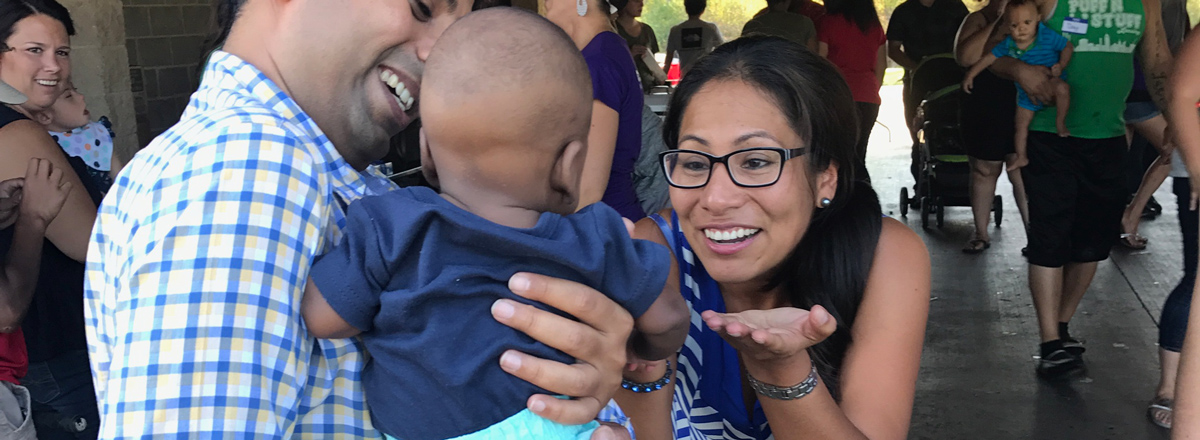PROGRAM OVERVIEW
Each Subspecialty Resident must design, conduct, analyze, and report the results of a clinical or laboratory research project. To this end, the Fellow is requires (with the assistance of the Program Director) to identify an area of research and a research preceptor no later than the end of the Fellow's sixth month with the program. We have enlisted basic scientists whose labs are open to providing Fellows with high-level training and mentoring. The mentors become part of the Fellow's Scholarly Activity and Oversight Committee, and will supervise the Fellow for the next two to three years.
In addition to their menor, the Fellow will have a faculty member acting as their preceptor. The preceptor will neet with the Fellow on a regular basis to provide ongoing evaluation of performance, help with research efforts, and provide critiques of work in progress. Research preceptors can be selected from within the Division of Neonatology or other Michigan State University academic units. The preceptor will also discuss evaluations provided by the NICU attending after each clinical rotation.
By the end of the first year, the Fellow is expected to have a complete research proposal prepared in collaboration with the Research Mentor and an IRB or Animal Care approval for the project. The Fellow must also complete the Biostatistics and Research Design course offered on a bi-anniual basis. Additionally, the Department of Epidemiology offers an Introduction to Descriptive and Analytical Epidemiology, which Fellows would do well to attend.
The Fellow is strongly encouraged to have an abstract ready by November of their second year, so that they submit their research to a National Meeting (usually PAS in May). In preparation, the Fellow should present work-in-progress at local and regional meetings (Midwest SPR, Pediatric Research Day, Lansing Research Day).
With input from their Research Mentor and the Program Director, the Fellow should be preparing manuscripts for publication by the middle of their third year.
RESEARCH MENTORS
Current research mentors include:
- Bruce Uhal, PhD and Ira Gewolb, MD—Advising Chintan Gandhi, MD (2018) and Prasanth Thiruvenkataramanai, MD (2020)
- Said Omar, MD—Advising Nageshwar Chauhan, MD (2018)
- Mark Kadrofske, MD, PhD—Advising Jenny Bellodas, MD (2019)
- Almudena Veiga-Lopez, PhD—Advising Visa Sethuraman (2020)
| Project Title | Funding Source | Faculty Investigator(s) |
|---|---|---|
| Preterm infants with persistent ductus arteriosus (PDA_: Is there a role for prolonged indomethacin therapy in achieving permanent closure? |
Awonuga—Principal Investigator Gewolb—Co-Investigator |
|
| Using Simulation to Teach Procedural Skills in Neonatal Medicine |
Awounga—Principal Investigator Gewolb—Co-Investigator |
|
| Assessing the association between entrustable professional activities, competencies, and milestones in the pediatric subspecialties |
Awounga—Principal Investigator Gewolb—Co-Investigator |
|
| Using In-Situ Simulation to teach the implementation of Team Sterategies and Tools to Enhance Performance and Patient Safety (TeamSTEPPS). |
Awonuga—Principal Investigator Olomu—Co-Investigator |
|
| An alternative strategy of nasogastric infusion feeding in premature newborn infants |
Gewolb—Principal Investigator Awonuga—Co-Investigator |
|
| MI VON quality collaborative | Michigan Department of Community Health | Karna—Principal Investigator |
| MDCH for MI VON quality collaborative | Michigan Department of Community Health | Karna—Principal Investigator |
| A Randomized Trial of the Use of Human Milk Cream to Decrease Length of Stay in Extremely Premature Infants | Prolacta Bioscienc® |
Karna —Principal Investiagor DeVitto—Co-Investigator Omar—Co-Investigator |
| Gestational Diabetes, Placental Microbiome and Neonatal Outcome: A Plot Study |
Olomu—Principal Investigator Mulks—Co-Investigator |
|
| Tonsil Microbiome - From Birth to Two Years of Life |
Olomu—Principal Investigator Mulks—Co-Investigator |
|
| Placental Pathology, Clinical Chatacteristics and Neurodevelopmental Outcomes in Full-Term Infants with Cerebral Infarcts |
Olomu—Principal Investigator Omar—Co-Principal Investigator |
|
| Ex Vivo expansion of Hematopoietic Stem Cells from Cord Blood | Omar—Principal Investigator | |
| Measurements of Prostacydin (PGI2) Urinary Metabolite to Determine the Severity of Respiratory Syncytial Virus (RSV) Infection in Children | Omar—Principal Investigator | |
| Effect of witholding feeds on the incidence of late onset necrotizing enterocolitis among premature neonates receiving Packed Red Blood Cells (PRBC) transfusion | Omar—Principal Investigator | |
| Sparrow CME Funds to support Fellows in Neonatology | Sparrow Hospital GME Department | Fellows and Mentors |

